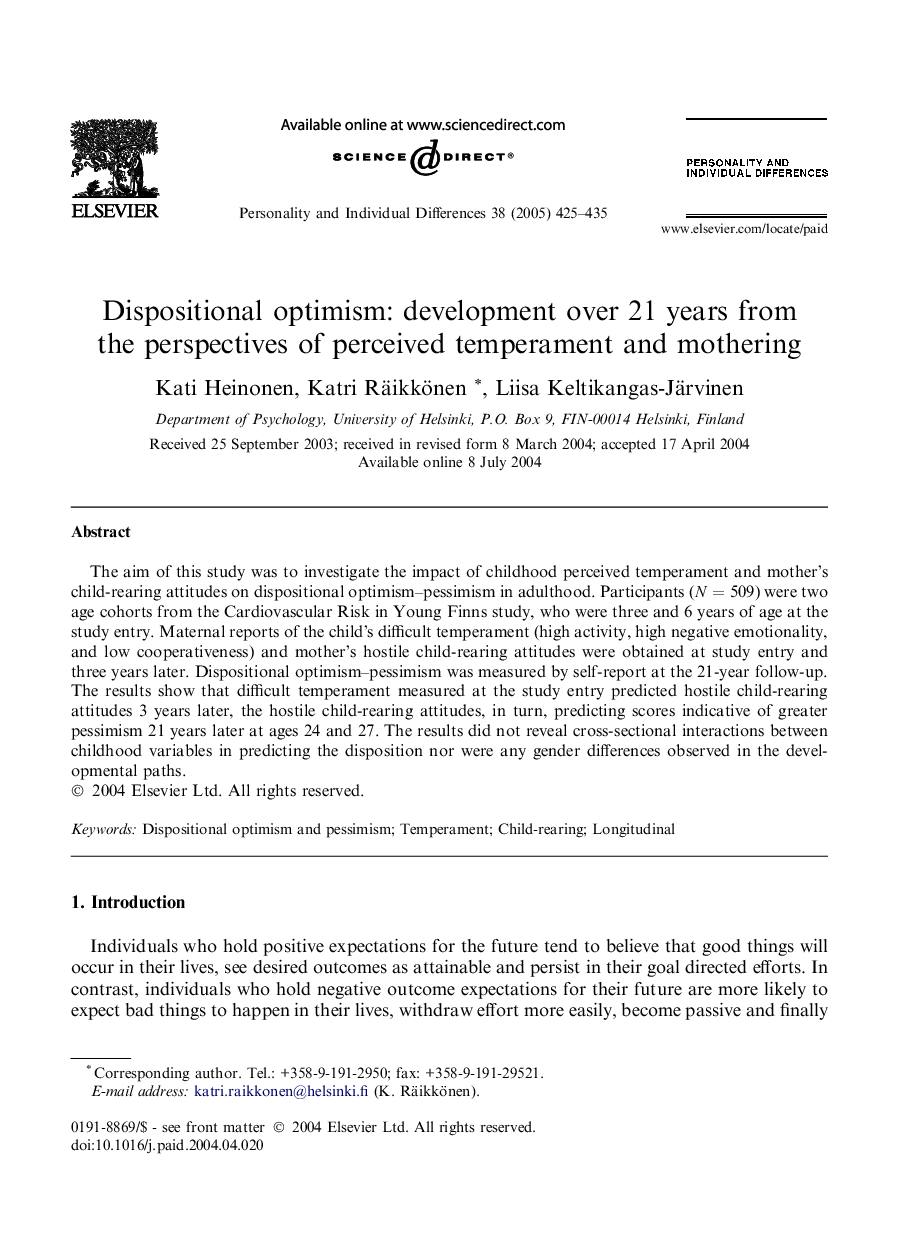| Article ID | Journal | Published Year | Pages | File Type |
|---|---|---|---|---|
| 10441126 | Personality and Individual Differences | 2005 | 11 Pages |
Abstract
The aim of this study was to investigate the impact of childhood perceived temperament and mother's child-rearing attitudes on dispositional optimism-pessimism in adulthood. Participants (N=509) were two age cohorts from the Cardiovascular Risk in Young Finns study, who were three and 6 years of age at the study entry. Maternal reports of the child's difficult temperament (high activity, high negative emotionality, and low cooperativeness) and mother's hostile child-rearing attitudes were obtained at study entry and three years later. Dispositional optimism-pessimism was measured by self-report at the 21-year follow-up. The results show that difficult temperament measured at the study entry predicted hostile child-rearing attitudes 3 years later, the hostile child-rearing attitudes, in turn, predicting scores indicative of greater pessimism 21 years later at ages 24 and 27. The results did not reveal cross-sectional interactions between childhood variables in predicting the disposition nor were any gender differences observed in the developmental paths.
Keywords
Related Topics
Life Sciences
Neuroscience
Behavioral Neuroscience
Authors
Kati Heinonen, Katri Räikkönen, Liisa Keltikangas-Järvinen,
